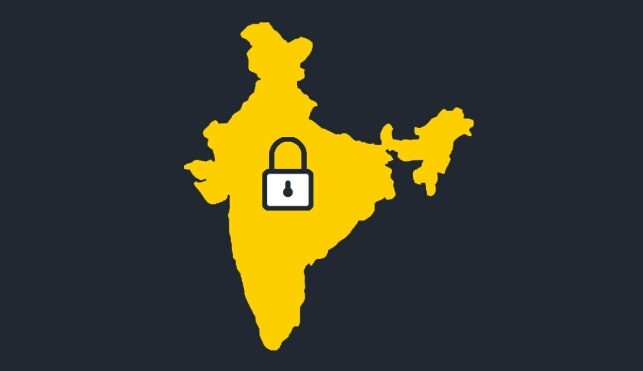By Dr Farrukh Khan, Advocate & Somya Mishra, Advocate
Now that the whole nation feels trapped amidst a lockdown, it is pertinent to understand the meaning of the term ‘lockdown’ and understand its origin. Even though there are many articles on the web which explain the current situation, a layman often uses lockdown, curfew and quarantine as synonymous terms. This article will primarily focus upon the interpretation of these terms and how our Government ended up imposing these on us.
Understanding Lockdown:
The origin of the term ‘Lockdown’ is from Britain. Just like almost everything else, we also inherited this term from another place. The current situation resembles the situation of Spanish Flu of 1918 which involved the H1N1 virus that came to be known as swine flu in a subsequent phase. That was the first time that a lockdown was initiated to prevent over-crowding and to ensure social distancing. In India, our Government used the term “Jantata Curfew” to give an Indianized tinge to lockdown although the word ‘curfew’ is also not found in any legal statute.
The IMF’s Economic Counsellor has named it the ‘Great Lockdown’, estimating the cumulative loss to global GDP over 2020 and 2021 at around 9 trillion US dollars – greater than the economies of Japan and Germany, combined.
If we refer to various Indian statutes, we find certain remedies already in place, such as the follows:
Section 269 of Indian Penal Code – Negligent act likely to spread infection of disease dangerous to life. The term of imprisonment can extend up to six months.
Section 270 of Indian Penal Code – Malignant act likely to spread infection of disease dangerous to life. The term of imprisonment can extend up to two years.
Section 271 of Indian Penal Code – Disobedience to quarantine rule. The term of imprisonment can extend up to six months.
Section 2 of the Epidemic Diseases Act, 1897 empowers the Government officials to take all possible measures to ensure that the epidemic does not spread. Section 3 of the same Act redirects to Section 188 of the Indian Penal Code to penalize those who defy the orders of the public officials.
This instance of section 2 r/w section 3 of the Epidemic Diseases Act is what is practically happening in the real situation today. However, the penalty underscored in Section 188 of the Indian Penal Code gives way to a maximum imprisonment for six months which is not being practically implemented in the current scenario.
The lockdown imposed by the Government upon the entire nation is a mere lenient form of the above-mentioned action whereby the penalty is not imposed on the public. This lockdown is itself considered to be a punishment for breaking quarantine by a major portion of the public. It is because of these provisions that the Government has refrained from imposing an emergency and has tried to control the situation as easily as possible. However, the guidelines for this lockdown were laid down by the Home Secretary in pursuance with the powers enshrined under Section 8 of the Disaster Management Act. The Epidemic Diseases Act and the Disaster Management Act have together joined hands to help in prevention of the further spreading of this pandemic.
Lockdown as a Utilitarian Approach:
This major portion of the public considers this lockdown as a bane because it violates their freedom of movement. On the other hand, this freedom of movement as enshrined under Article 19 of the Constitution seems trivial as compared to the number of lives being affected by the pandemic. Although a mere common sense is enough to understand the logic behind this lockdown, a jurisprudential reasoning has also become apparent.
Jeremy Bentham began the Principle of Utility where he focused upon ‘pain’ and ‘pleasure’ being the two sovereign masters.
Bentham laid down four propositions in order to justify his theory of utilitarianism. They are as follows:
1. Every person is in search of personal gain or benefit.
2. Collectively, all persons seek the same happiness irrespective of any particular condition.
3. Hence, the ultimate aim is to maximize pleasure and to minimize the pain caused to any person.
4. The State is endowed with the responsibility of promoting greatest happiness for the greater good.
Taking all the above factors into consideration, the utilitarianism hidden behind the concept of lockdown is clearly visible. The concept of utilitarianism is broad enough to be conveniently made applicable in any situation favouring the mass but, the present situation makes it very apt to understand what utilitarianism actually is. The pain of being infected by the virus supersedes the pain of simply staying indoors; the pleasure of remaining healthy and safe supersedes the pleasure of moving out and gathering around people. Hence, the concept of maximizing pleasure and minimizing pain is clearly visible and this adds up to the common sense and logic behind the legality of this lockdown. This also fits into the concept of utilitarianism explained by John Stuart Mill. In his opinion, individual happiness should be “in harmony with” societal happiness. This harmony is established by educating people about the link between their own happiness and the good of all. To those who object that promoting the happiness of the whole is too high a standard for humanity, mistake in conceiving it as implying that individuals should fix their minds on something as broad as the world or society in general. This further validates the legality of the lockdown.
***
Dr Farrukh Khan is an Advocate and Managing Partner of Law Firm- Diwan Advocates. Somya Mishra is an Advocate, working with Diwan Advocates.






